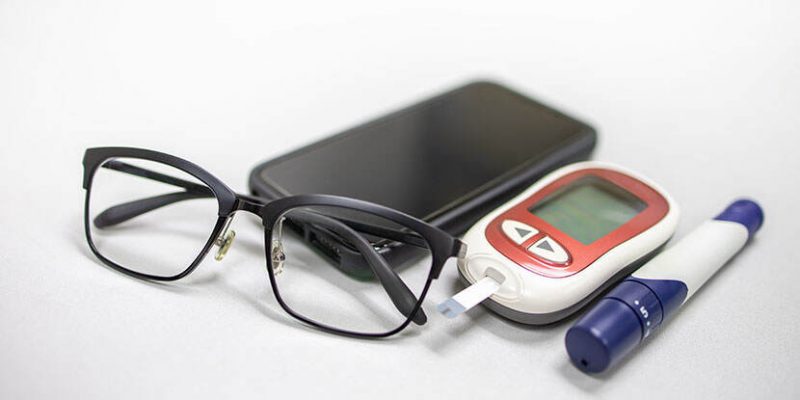How Diabetes Affects Your Eye Care
What happens to your eyes when you have diabetes?
By Reena Mukamal for the American Academy of Ophthalmology.
You may already know that diabetes increases your risk of developing vision problems. High blood sugar can damage the tiny blood vessels in your eyes and cause complications like diabetic retinopathy and diabetic macular edema.
But what you may not realize is that people with diabetes almost
always have unique eye care needs and considerations, even if their
blood sugar is well controlled.
Here are some of the common impacts of diabetes on your eye health and ways that your eye care may be adapted.
How quickly should a person with diabetes have an eye exam?
- If you have type 1 diabetes, schedule an eye exam with an ophthalmologist within 5 years of disease onset.
- If you have type 2 diabetes, you should see an ophthalmologist as soon you are diagnosed, regardless of your age. Follow your eye doctor’s recommendation about how often you should be rechecked, as this varies for every individual.
The connection between diabetes and cataracts
People with diabetes are twice as likely to develop cataracts than other adults — and cataracts are more likely to show up at a younger age. Cataracts cause your natural lens to become cloudy, leading to blurry, hazy or less colorful vision. Over time, you may need surgery to restore your sight.
With diabetes, you have a higher risk of swelling in the retina, also known as macular edema, after cataract surgery. This is especially true if you have diabetic retinopathy. Either way, your ophthalmologist may want you to be checked by a retinal specialist prior to cataract surgery and receive pre-treatment if necessary. Therapies may include steroid or anti-VEGF injections aimed to control inflammation in the retina.
In cataract surgery, your cloudy natural lens is removed and replaced with a clear artificial lens, also called an intraocular lens (IOL). While IOLs come in different options, your choices may be more limited if you have diabetes. For example, if you have or are at risk for DR, multifocal IOLs may not be the best option because they could reduce contrast sensitivity or visual acuity. Toric IOLs, which correct astigmatism, may not be a good choice if you have diabetic retinopathy because your vision could change over time, making your IOL less effective. Your surgeon should review your history and help guide you to the best IOL for you.
Diabetes is a risk factor for glaucoma
Having diabetes doubles your odds of developing glaucoma,
a chronic condition where retained fluid causes pressure to build up
inside the eye. Extra pressure can damage the retina and the optic
nerve, harming your vision.
Sometimes, treatments for
diabetes-related eye conditions can also elevate eye pressure. For
example, steroid treatments to reduce swelling in the retina can cause
spikes in eye pressure. If you are being treated by a retinal
specialist, they may also refer you to a glaucoma specialist for ongoing
maintenance and monitoring.
If you do have glaucoma, you will also have a higher risk of elevated eye pressure after cataract surgery.
What do diabetes and macular degeneration have in common?
Diabetes does not affect your risk of developing age-related macular degeneration (AMD). However, some of the symptoms and treatments for these two conditions may overlap.
For
example, diabetes-related macular edema, diabetic retinopathy and AMD
can all lead to leaky blood vessels in the retina. All three of these
conditions may be improved by treatment with anti-VEGF injections.
How can you tell if diabetes is affecting your eyes?
If you have diabetes, it’s important to watch for early signs of trouble in your eyes.
Treatments
for diabetes-related eye problems are expanding and improving. The
sooner you notice a symptom, the more likely treatment will help.
Call your doctor if you have diabetes and notice any of the following:
- Blurry, cloudy, or double vision
- Flashing lights or rings around lights
- Blank, dark, or floating spots in your vision
- Pain, pressure, or constant redness in your eyes
- Trouble seeing signs or straight lines
- Trouble seeing out of the corner of your eye
- Any sudden change in your vision

